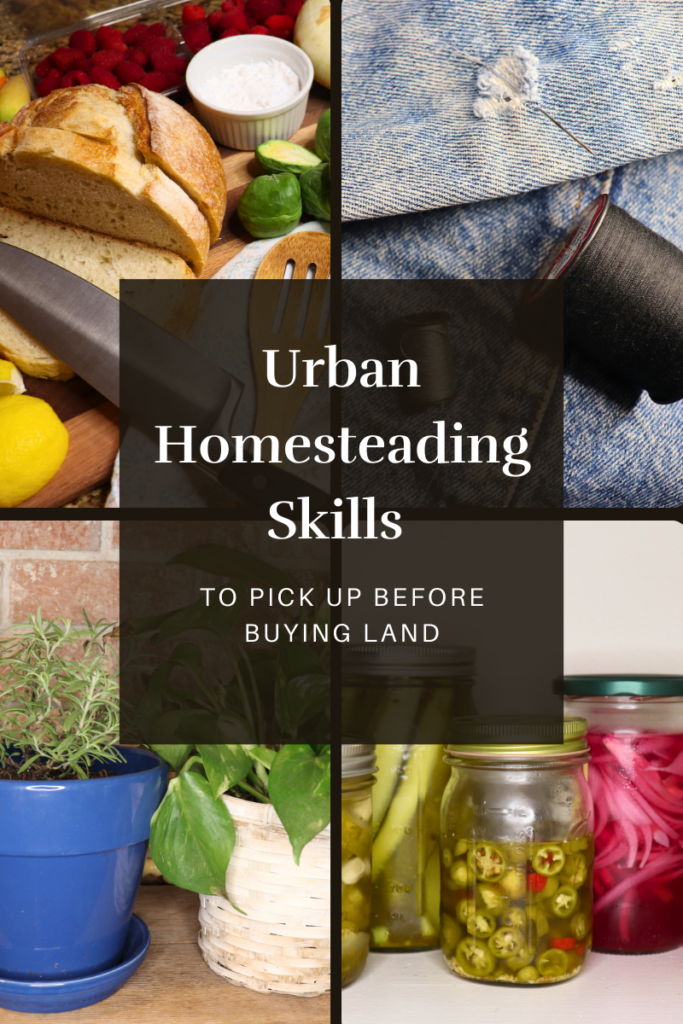
There are many skills a homesteader needs, and some of them require a huge learning curve. If you want land one day, it’s a good idea to begin working on these skills today. Here are 8 urban homesteading skills you can start learning now whether you are preparing for future land, or you simply want to cultivate a more natural, self-sustaining lifestyle where you are.
Urban Homesteading Skills
1. Cooking From Scratch
The ability to cook food from basic, whole ingredients is perhaps one of the most fundamental skills in homesteading. It is also one of the easiest to start learning. The only thing you need is a kitchen.
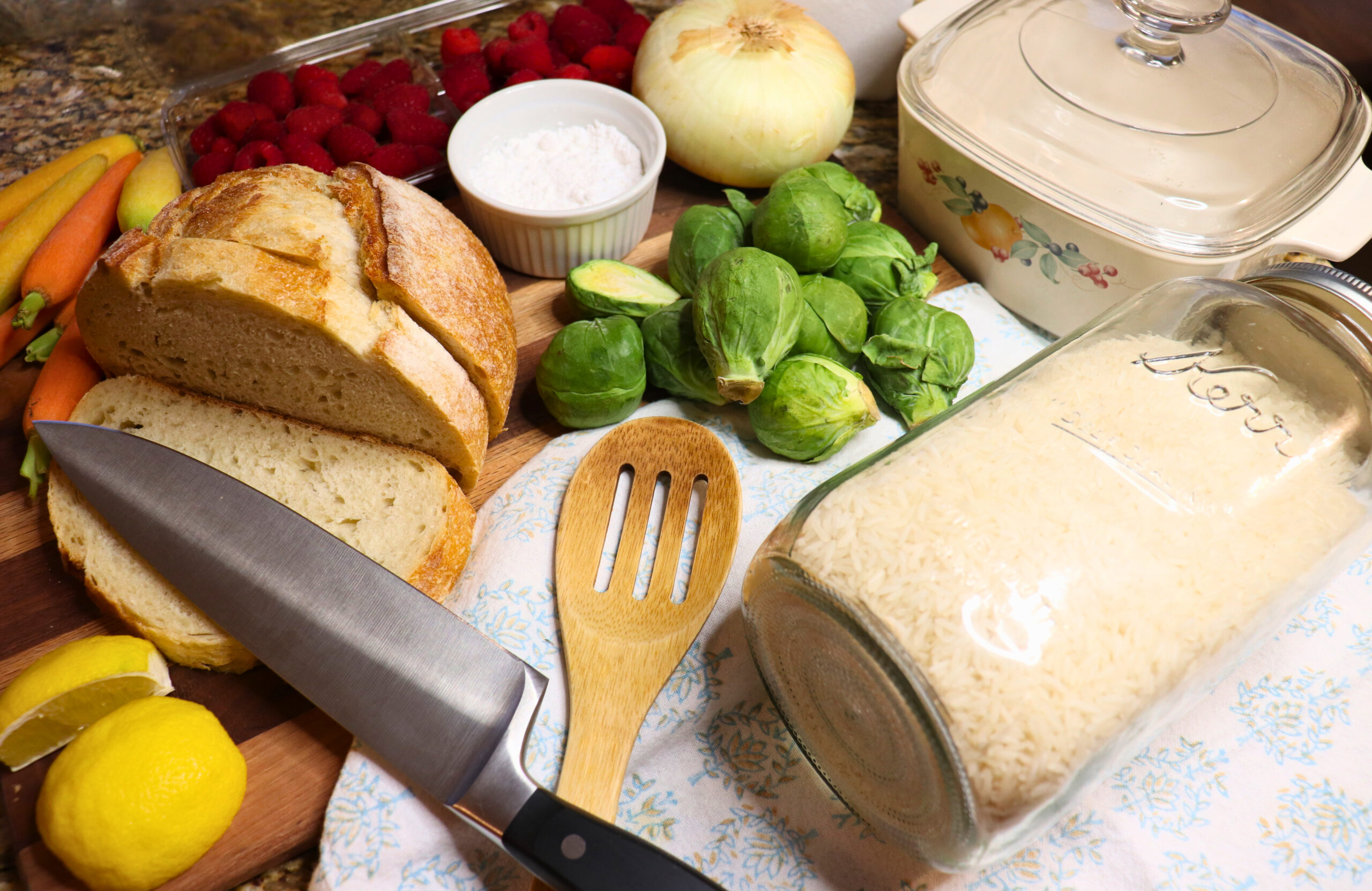
Cooking your own food from scratch will not only prepare you to homestead, it can also save you a LOT of money now. As an example, cooking my family a dozen chocolate chip cookies from scratch costs at most $2.20 in 2025. But buying a ready-made dozen of chocolate chip cookies from the bakery section of our grocery store costs $4.00, and buying cookie dough to bake one dozen costs $4.30. So it is almost half the cost to make your own, and plenty healthier.
You likely already have some cooking know-how under your belt, but the best thing about cooking from scratch is that everyone has something to learn. Whether you are the type to buy boxed potatoes or one to roast a whole chicken from scratch, we all have something to learn. Here are a few challenges that can help you hone your cooking skills for your one-day homestead:
Beginner
- Roast a whole chicken
- Learn how to make a great steak
- Homemade pie crust
- Cobbler
- Creamed corn
- Roasted butternut squash
Intermediate
- Pot roast
- Fall apart ribs
- Salmon
- Chicken and dumplings
Advanced
- Jams and jellies
- Risotto
- Grilled whole fish
- Croissants from scratch
2. Canning
Once you start to garden, you quickly learn that you need a way to preserve the fresh produce you are harvesting. After all, you don’t want any of your hard work to go to waste. Canning is one method of preservation that is very common among homesteaders. Getting this under your belt before you start to garden on a larger scale can save you a lot of stress and wasted food.
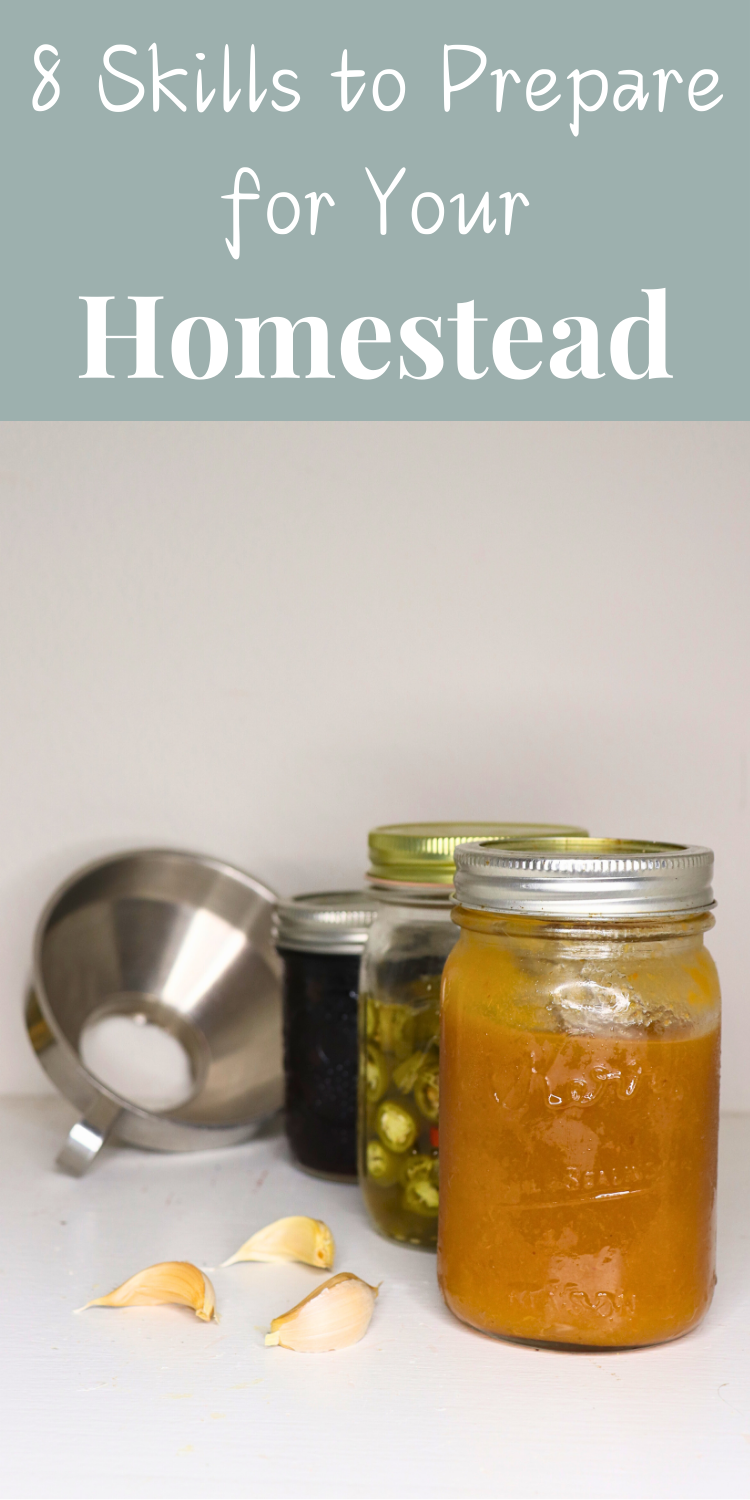
You don’t need to be growing food to learn how to can. Consider buying produce from local farmers to practice canning. Of course, there are other methods of preservation (drying, root cellar, freeze drying, etc.) that would be also be worthwhile learning. But canning will also get you started on the next item in this list: pickling.
Note: This skill is more useful if you plan to garden in the future. If that’s not your plan, it may not be worth it to you. You’re the judge of that.
3. Pickling and Fermenting
Another classic homesteading skill for the urban homesteader is pickling and fermenting. This is a much easier, though sometimes shorter-term, way of preserving foods. Learning how to pickle and ferment foods is beneficial whether you live on land or in an apartment. Fermenting foods doesn’t have to be intimidating, and can actually be extremely simple.
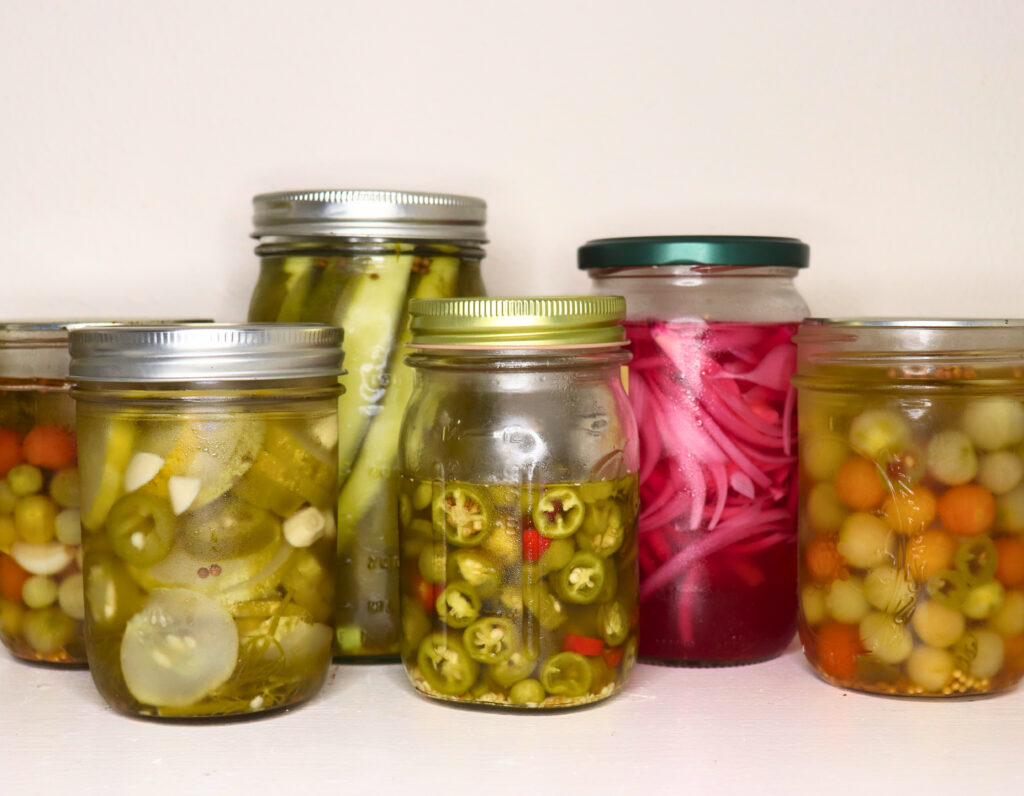
What is fermentation?
Fermentation happens when microorganisms break down food over time. This process packs these foods with nutrients and probiotics that are excellent for your gut health. Fermenting or even pickling your own foods is extremely beneficial to your health.
Some foods to get you started
- Sauerkraut
- Kimchi
- Sourdough
- Pickled onions
- Pickled radish
- Pickled cucumbers
- Pickled garlic
4. Sourcing Well
A skill that is honestly not spoken about enough in the urban homesteading world is how to source things well. When I say source well, I mean knowing and trusting where your food is coming from. Yes, we may want to source our food ourselves, but that is usually not realistic (especially living in a major city) before you own a couple of acres at least. So knowing where to get wholesome, healthy food from sustainable sources that you can trust and feel good about supporting is a great skill to learn.
How to source things well is very dependent on your city and community. It takes time, patience, and research, but it is so worth it. Here are a few tips to get you started:
Tips For Sourcing Meat Well
Find a local farmer or rancher that will sell to you
Start looking for a local farmer selling chickens, pigs, or even portions of a whole cow. This will take some time as you will have to sift through the many options, some of which can be overly expensive. But with patience, you can find some really good meat at a reasonable price.
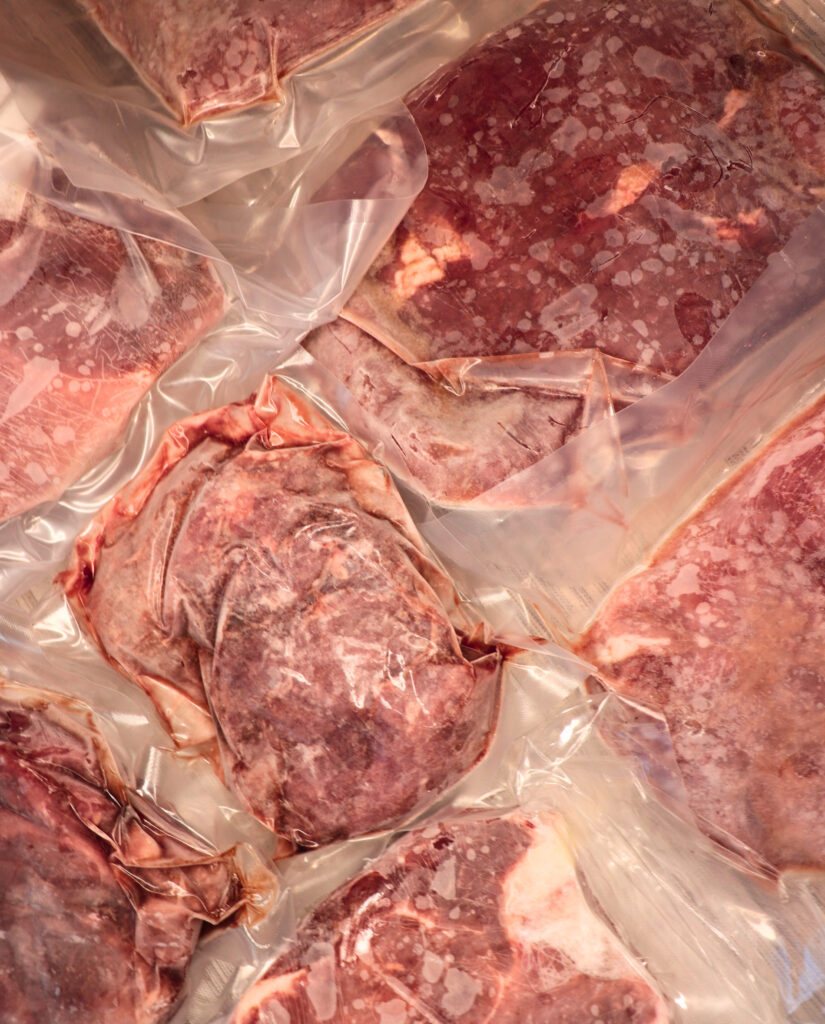
Places to look:
- Farmers Markets (often the more expensive options, but sometimes you luck out)
- Online
- Ask people! The best way to find reasonable local meat is to ask other like-minded people if they have a source
Buy in Bulk
The best way to save money on natural, local meat is buying in bulk. Going in on a portion of a cow or a whole pig with family or friends is a great way to get a lower price and not overstuff your freezer.
Think cost per pound, not total
Buying even 1/3 of a cow is an investment. That meat is going to last you a long time. So consider the cost per pound when buying, not necessarily the total. If you can afford that much now, then you likely won’t have to buy meat for several months.
Tips for Sourcing Dairy and Produce Well
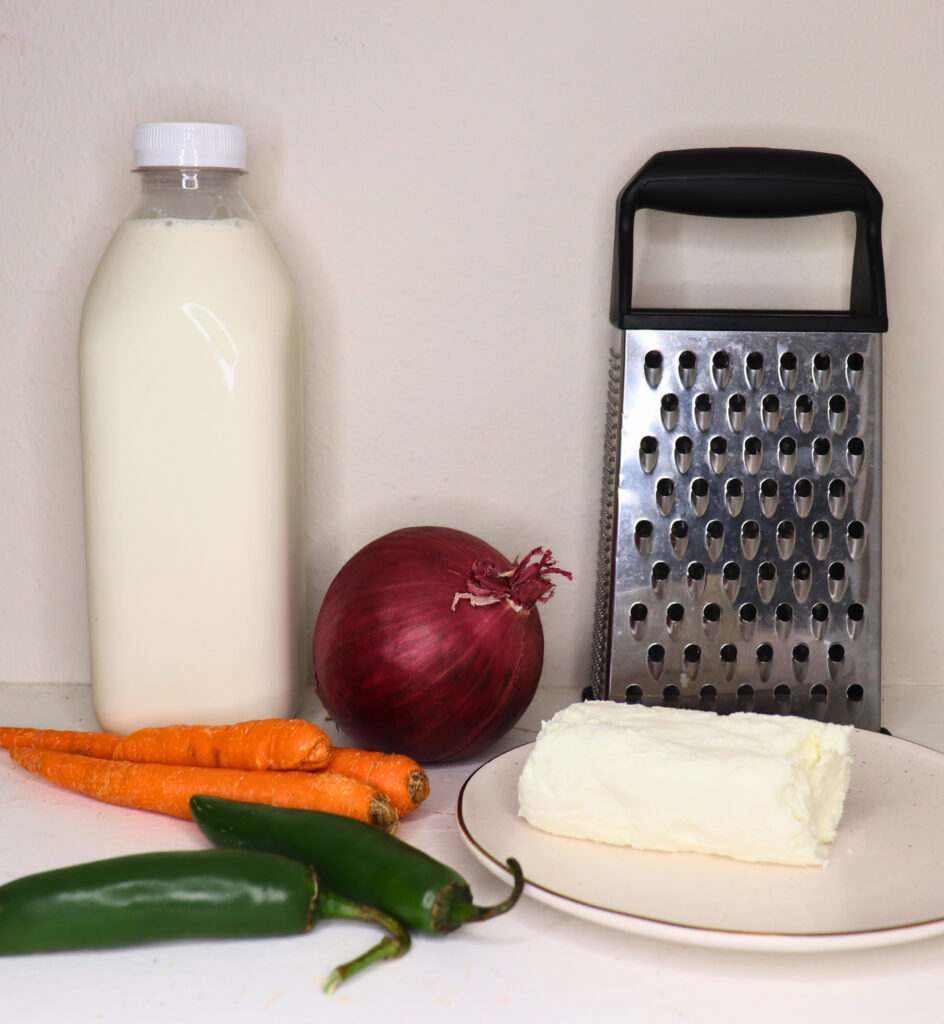
Go to a Farm
You can actually buy a lot of produce and even dairy straight from farms. This is a great option because you are getting it fresh while also supporting locals in your area.
Certain farms and orchards have options for you to buy straight from them or even pick the produce yourself. Growing up, I lived in a town known for its citrus. When everything was in season, my mom would sometimes take us to one of the nearby orchards where the farmer would give us a bucket and we would go pick oranges and grapefruit ourselves. This was actually cheaper than the store and as fresh as you can possibly get. So check what grows near you. If you have the opportunity to go directly to the source, you can create some great memories, support farmers, and maybe save some money along the way.
Ask around at the local farmers market
If someone is selling meat, ask if they sell dairy. Farmers at markets will often either sell or know someone who does. They are a great source of information if you’re willing to ask around.
Just do your research.
If you do go the route of a grocery store, just do your research. Stores are polluted with labels that have little to do with the actual quality and a lot to do with clever marketing. Even things in farmers markets are sometimes misleading. Know what questions to ask, and don’t be afraid to ask them.
5. Grow Indoor Plants
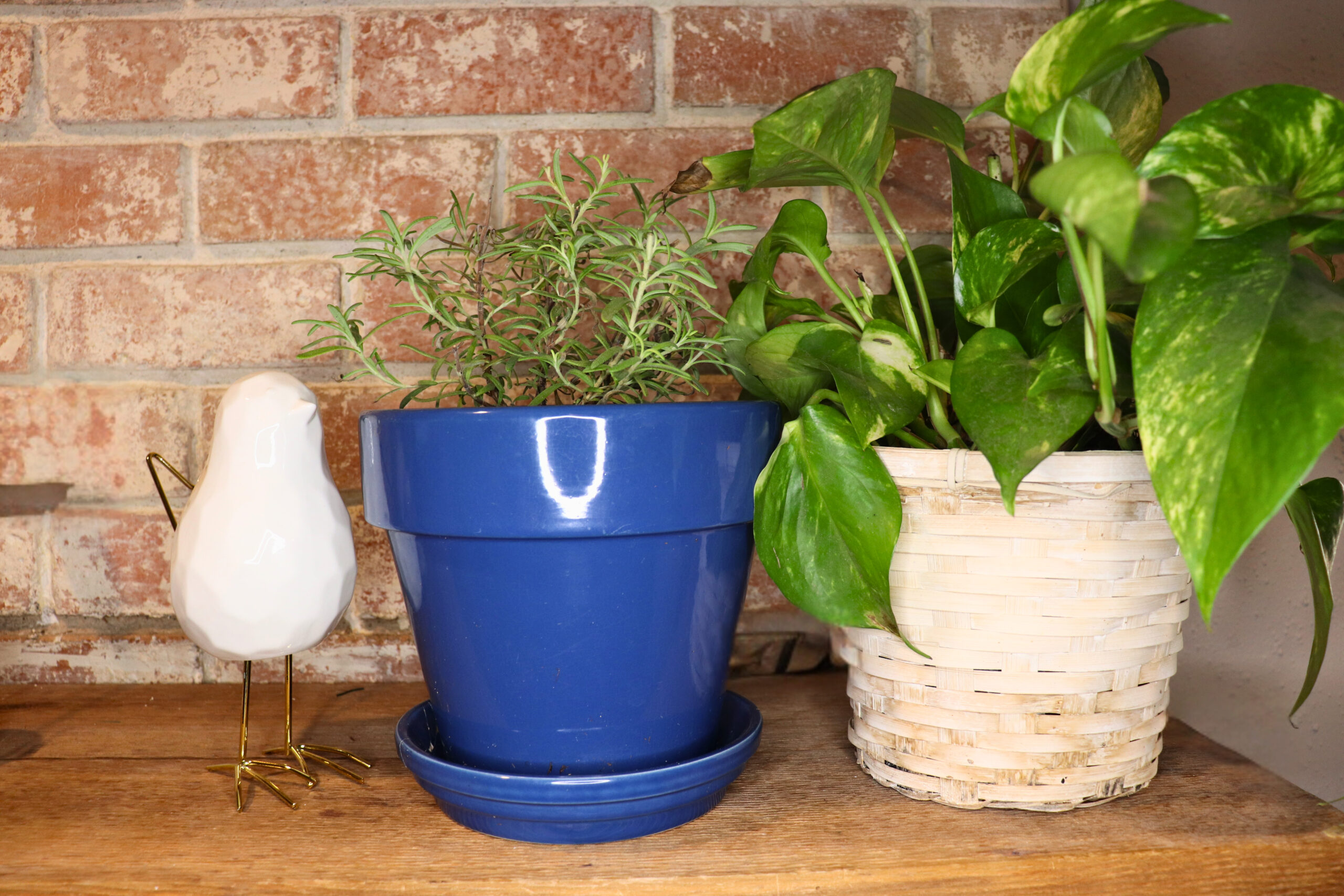
Gardening can be intimidating and requires a large learning curve, but like cooking, it is a basic skill for both traditional and urban homesteading. Learning how to care for plants in your home is a great way to start building the habits and basic knowledge you will need to maintaining a larger garden.
Where to Start
A great place to start is with herbs. These are not only small and usually pretty easy, but they will also allow you to produce some of your own food, even if it is on a small scale. It’s all about baby steps. Look into the herbs that do well in your area. We find that rosemary, basil and especially mint are quite easy to grow and maintain.
Another great option is to grow air-purifying houseplants such as English Ivy, Snake Plants, or Peace Lilies. These are a bit larger and may add a new challenge as you begin to experiment with different plants in your home.
6. Sewing
I am not even close to an expert in sewing, but the nice thing about it is that you don’t have to know much for it to become extremely useful around the house. Sewing might sound intimidating if you’ve never tried it, but even the ability to hem a piece of clothing can help out a ton and is super simple.
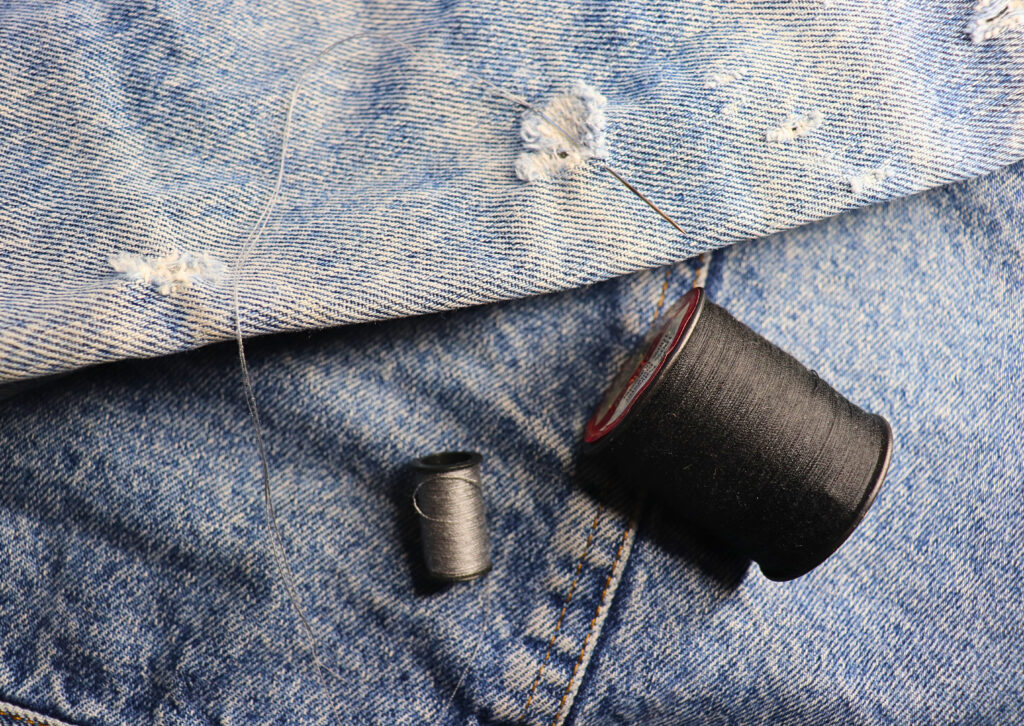
Here are some basic sewing skills that don’t require a sewing machine to get you started:
- Sewing on a button
- Patching holes
- Hemming
- Darning
Learning these skills allows you to repair clothes instead of having to throw something out as soon as it rips, loses a button, etc. It’s a great way to be less wasteful and more self-sustaining. If you already have these skills under your belt, try building your skill set from where you are. Consider learning how to make your own curtains, table cloth, pillow cases, or even clothing. Sewing is a great way to improve your urban homesteading skills!
7. Making Your Own Household Cleaning Products
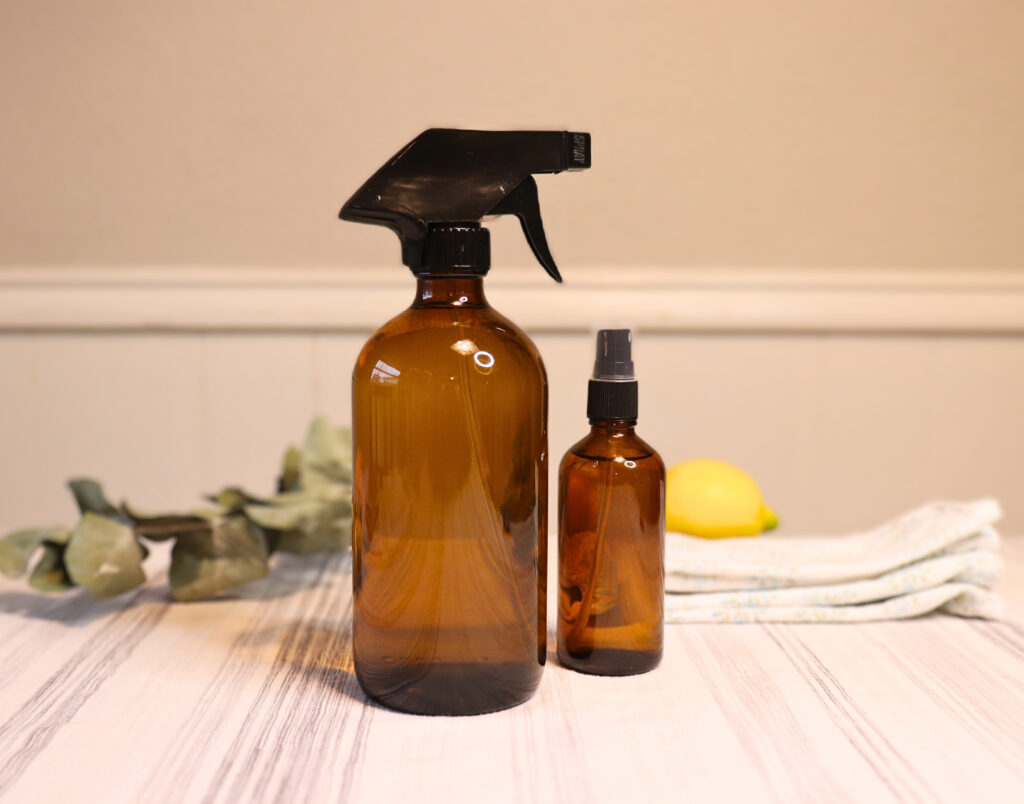
Making your own household cleaning products will detoxify your home and save you money, and you probably already have everything you need to get started. This is probably my favorite urban homesteading skill after cooking from scratch.
There is no reason to continue buying expensive cleaners from the stores when you can use daily ingredients such as vinegar, baking soda, salt, lemon, etc. Throw in some rubbing alcohol or essential oils and you are set!
Here are a few items to get you started:
- All-purpose spray cleaner
- Dish soap
- Window cleaner
- Multi-surface bathroom cleaner
You can also check out our post on crucial ingredients needed to make your own household cleaners.
8. Learn How to Process Raw Milk
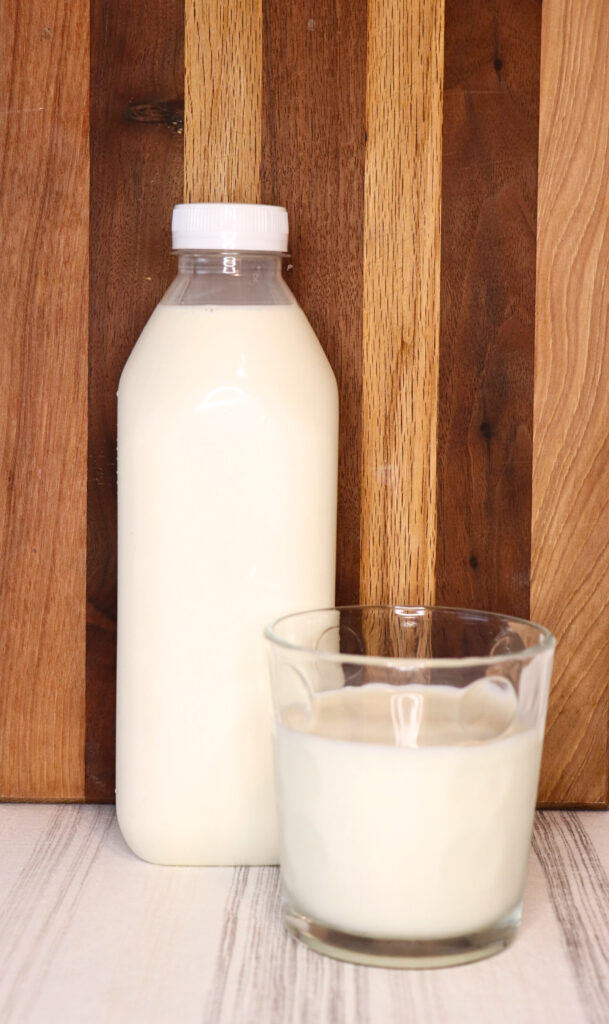
Okay, this one is for those who are looking to buy land and eventually own a dairy animal. If you plan to milk an animal, you need to learn how to process milk, from sterilization practices to skimming cream, there is a lot to know. Practicing this with raw milk that you buy from a local farmer can save you a lot of stress when you get your own animal.
If you want to see if someone sells raw milk near you, try this free resource!
Start Building Your Urban Homesteading Skills Today!
Whether you want to remain an urban homesteader or are waiting for the day you buy land, now is the time to get to work! Choose a skill to work on and start living more naturally and sustainably where you are now.
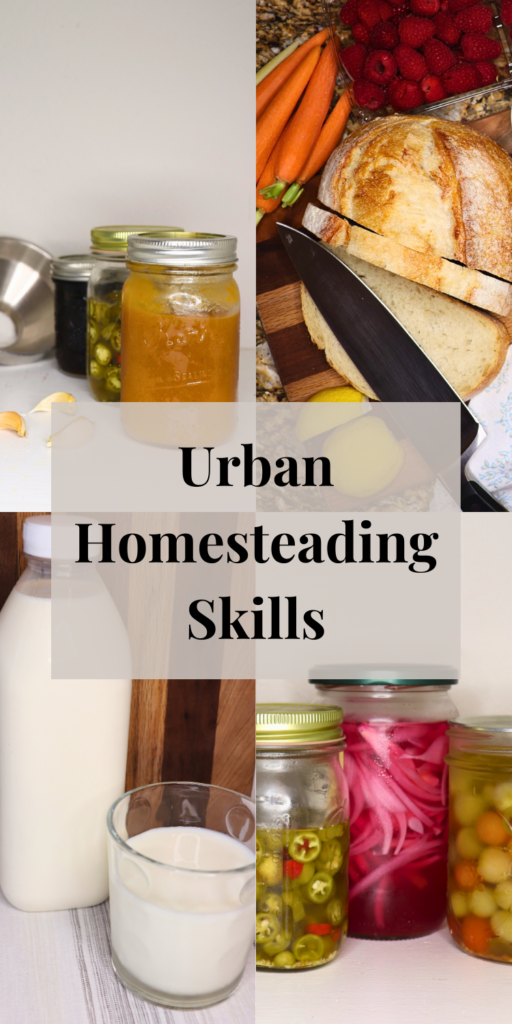
Which of these skills are you going to work on? Let us know down in the comments below!

Leave a Reply